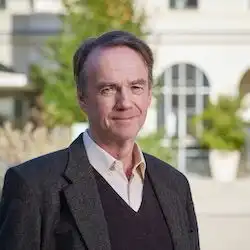Home>State capacity, land use and carbon emissions, and trade in the the interwar empire
15.09.2025
State capacity, land use and carbon emissions, and trade in the the interwar empire
The Agence nationale de la recherche (ANR) announced the list of selected projects following their 2025 Generic Call for Proposals (AAPG 2025).
The Department has been awarded three new ANR grants, bringing the number to six new ANR projects over the course of the 2024-25 academic year, attesting both to the excellence and the growing diversity of research strands of the Department's faculty.
Congratulations to Justine Knebelmann, Kevin H. O'Rourke, Nicolas Cœurdacier, and Emeric Henry !
State Capacity and Digitization (AFREGOV)


Justine Knebelmann, who joined us in the Fall of 2024, is specialised in the research fields development and public economics. Her work is mostly centred around state capacity in developing countries. She notably works on tax policies and land issues and has been working with tax administrations in Sub-Saharan Africa since 2015 (read article, in French, in Le Monde, August 9th 2025).
With the awarding of an ANR 'Young Researcher' (JCJC) grant for her project State Capacity and Digitization (AFREGOV), she will be pursuing this line of research.
Justine's project aims to investigate the potential of digitalization to strengthen government capacity in low-income countries, both on the taxation and service delivery sides.
Trade, Protection, and Development in the Interwar Empire (TPADIE)


Kevin H. O'Rourke's research lies at the intersection of economic history and international economics. In particular, he has done a lot of work on the history of globalization and deglobalization, and is still working on these themes as attested by his ANR 'Collaborative Research Project' (PRC) on Trade, Protection, and Development in the Interwar Empire (TPADIE).
Kevin will explore the relationships between trade, trade policies, other government policies, and economic development in the interwar French, Dutch, and Japanese empires. He will also study the nature and implications of changing trade policy in China at this time, as an example of an underdeveloped country which, while formally independent, faced severe outside constraints on its ability to choose its own trade policy before it regained tariff autonomy in 1929.
Land Use and Carbon Emissions (LUCE)


Nicolas Cœurdacier (coordinator) and Emeric Henry were awarded an ANR 'Collaborative Research Project' (PRC) grant for their project Land Use and Carbon Emissions (LUCE).
Nicolas' research interests span international macroeconomics and finance, spatial macroeconomics, and macroeconomics and demographics. Emeric is a microeconomist who uses theory, experimental and empirical methods to study questions in law and economics, innovation and digital economics.
Nicolas and Emeric will build French spatial data on land use, sectoral employment and emissions from original sources over a long period and will develop an integrated quantitative spatial model of land use and emissions -- accounting for emissions from commuting, housing, industrial and agricultural production, but also storage in forests and fields. The project aims at determining how different channels account for historical emissions in France since 1840 and what policy tools should be used at different stages of development to reduce them. The design of these policies is of crucial importance for global emissions as many emerging countries are expected to witness rapid urbanization in the future.
Nicolas' website
Emeric's website
Our partners
Institutional partnerships for research and innovation
- CNRS
- Banque de France
- The CORE Project
- The Kellen Foundation
Other research centres
- LEPI
- LIEPP
- OFCE
